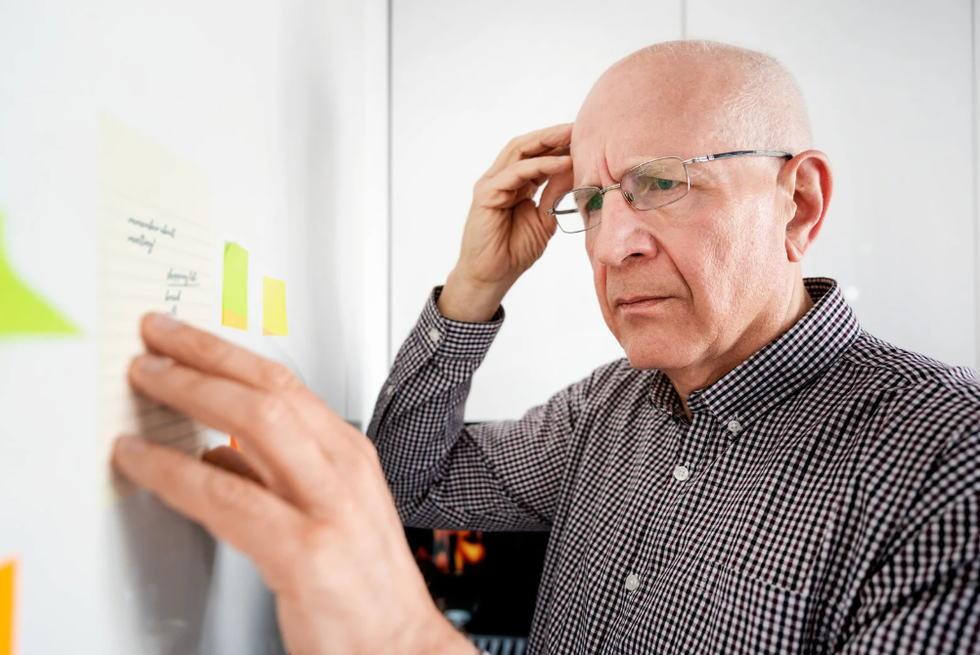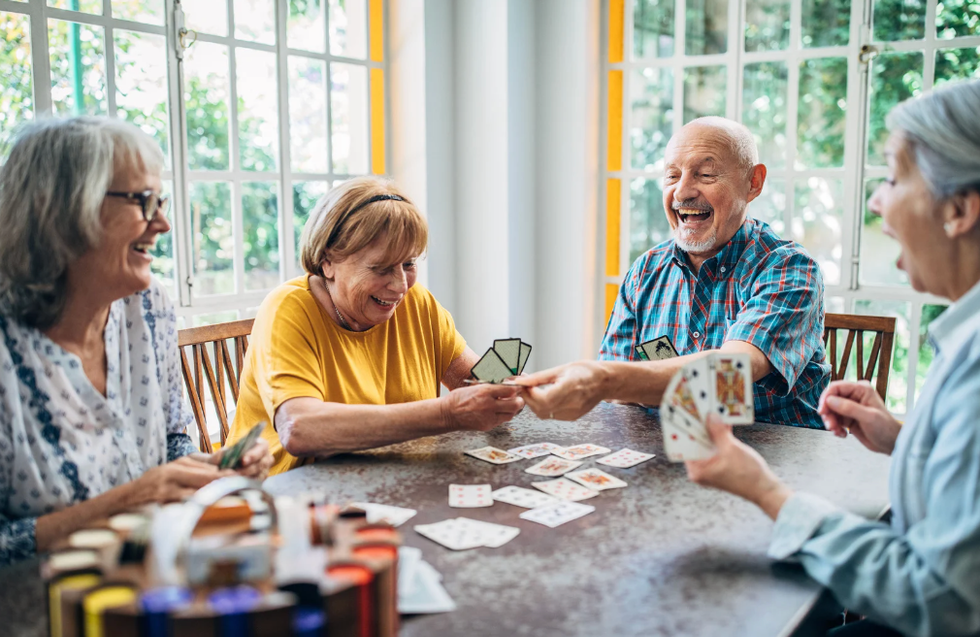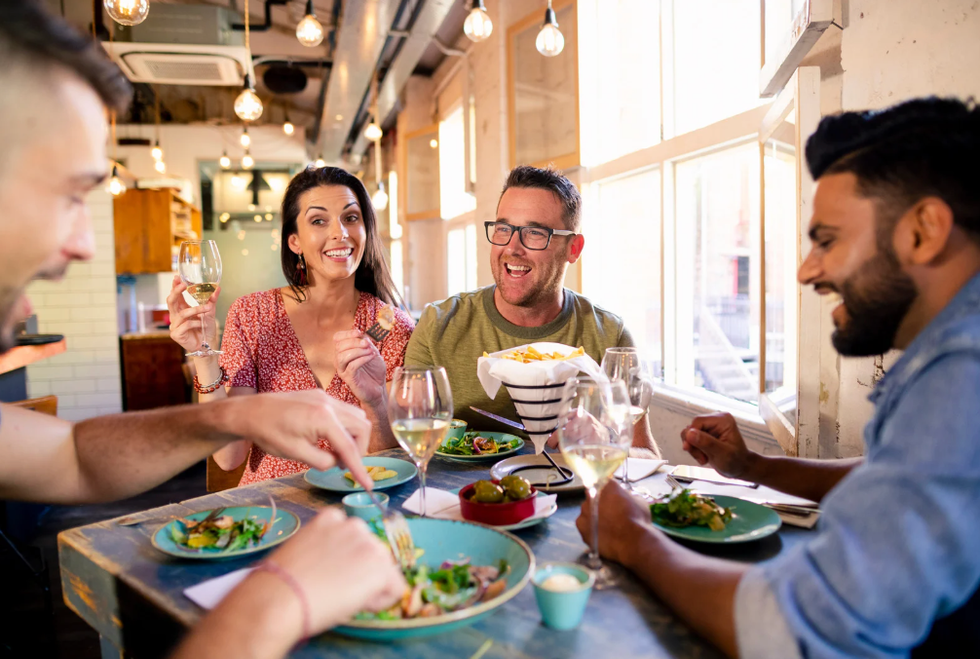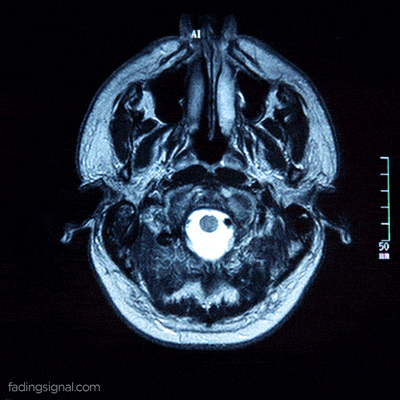A new study of the elderly is showing that regular social activity could offset or delay dementia by five years. The study published by the Alzheimer's Association is showing that just playing games with folks regularly, volunteering, or just having a regular lunch with a friend can significantly slow down cognitive decline.
The researchers at Rush University studied 1,923 dementia-free seniors with an average age of 80 that underwent annual neurological evaluations. Cognitive function was measured through 21 different tests that assessed various types of memory along with perception of speed and visuospatial ability. Out of the total, 545 developed dementia and 695 developed some form of mild cognitive impairment within the five-year analysis. Accounting for other factors and adjustments for analysis, such as age, physical fitness, and other health issues, the results found that the participants that participated in social activities regularly had a slower mental decline or little to no decline at all.
Social activity was measured based on a survey that asked participants if they had participated in six common social activities for their age group within the previous year. Some of the options listed included playing bingo, going out on a day or overnight trip, volunteering, visits with friends or relatives, and going out to restaurants. To put it in percentages, the findings showed that a more regular social life pointed at a 38% reduction in dementia risk and a 21% reduction in mild cognitive impairment compared to those who were the least socially active.

So being active as an older person is not only good for the soul, but good for the brain, too. But that’s when we hit a bit of a problem. As you get older, it becomes more and more difficult to develop new friendships and maintain them. In fact, according to the current U.S. surgeon general, we have a loneliness epidemic in this country that impacts the mental and physical health throughout all age ranges, but particularly people in their 30s and 40s. In other words, younger adults should learn how to be more social now in order for themselves to have the skills to develop friendships as they get older, too. For their brains’ sake, and for overall quality of life.
So how do you make friends as an adult? Well, the answer is that there are many ways you can make new friends and maintain treasured relationships, which is a wonderful problem. The problem is that there are so many options, but finding the right ones for you could take a lot of trial and error.

A simple internet search of “how to make friends as an adult” can lead you to many different options that you might be frozen by choice. To winnow it all down, think of the activities you like or causes you care about. Check online to see if there are any local clubs or a Facebook group/social media group to follow regarding events in your area to meet people. Volunteer your time to a cause or public service you support, like a pet shelter or a food pantry. If you just want to go to an Applebee’s, there might just be a group of folks who also just meet up at Applebee's once a month. If not, maybe you can start one!
If you do have a set of friends or activities, make it a point to show up regularly for them. Have a set appointment to grab lunch with your buddies twice a month. Go to the weekly club meeting, even if you don’t feel like going. Cementing social activities in your routine can help you keep and maintain those connections while providing brain health. If you’re not in the mood, you can even tell yourself “it’s for my brain health” to help motivate you to attend. If not, again, there are other people, clubs, and activities to choose from that might be a better fit for you.

Do your best to keep that dinner date, pick-up game, or movie night. It’ll not only be fun, but it might also keep your brain strong.




















 Music isn't just good for social bonding.Photo credit: Canva
Music isn't just good for social bonding.Photo credit: Canva Our genes may influence our love of music more than we realize.Photo credit: Canva
Our genes may influence our love of music more than we realize.Photo credit: Canva
 Great White Sharks GIF by Shark Week
Great White Sharks GIF by Shark Week

 Blue Ghost Mission 1 - Sunset Panorama GlowPhoto credit:
Blue Ghost Mission 1 - Sunset Panorama GlowPhoto credit: 
 medical school brain GIF
medical school brain GIF woman leaning on man's shoulder
Photo by
woman leaning on man's shoulder
Photo by 
 Ripe bananas
Ripe bananas How we treat produce could be changing for the better.
How we treat produce could be changing for the better.